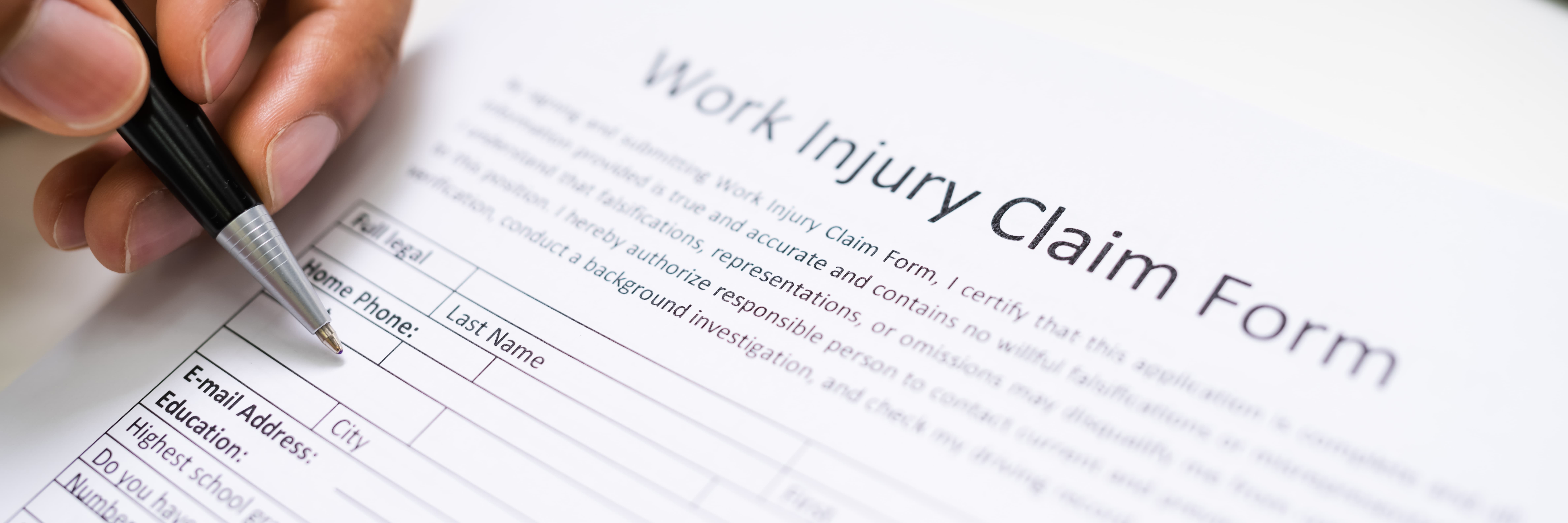Possible Long-Term Effects from Brain Injuries: What To Expect and How to Properly Manage Your Traumatic Brain Injury
A brain injury can immediately change a person’s life. Personal injury victims who suffer traumatic brain injuries (TBI) need to know what to expect and how to properly manage their symptoms. Helping victims and their families means addressing medical needs as well as financial needs.
As experienced catastrophic injury litigators, our law firm gets a lot of questions about brain injuries, their effects, and possibly claiming financial compensation. Our traumatic brain injury lawyers share answers to these frequently asked questions and what you can do after a brain injury.

Concussions and Brain Injury Claims
What Is the Average Concussion Settlement?
The average concussion settlement in a personal injury case ranges from $25,000-$100,000 because the effects and levels of care associated with TBI can differ significantly from person to person. Severe cases may result in much higher amounts. In addition, laws applying to the case and the strength of the legal claim play a role in determining a settlement.
Can You Sue for Millions Over a Concussion?
A lawsuit for concussion with extreme damages and impact to the person’s life can be over $1 million. The damages must be allowable under the law, and they may be a combination of economic, non-economic, and possibly punitive damages. However, each case has unique factors to consider.
Is Mild Traumatic Brain Injury a Disability?
If a mild traumatic brain injury interferes with a major life function, it is a disability. A brain injury may cause physical or mental challenges that prohibit the individual from living a normal life. When a traumatic brain injury causes a disability, the victim may qualify for social assistance programs, including Social Security Disability, Supplemental Security Income, paid healthcare, and other help.
What Does It Feel Like To Get a Concussion?
Concussion may produce unconsciousness, but it can also feel like a headache, confusion, or nausea. It can be blurred vision or being unable to process what is going on. Symptoms vary significantly among victims, and they can continue in the days and weeks following the injury.
Brain Injury Causes and Diagnosis
What Is the Most Common Cause of an Acquired Brain Injury?
According to the Northern Brain Injury Association, trauma is the most common cause of an acquired brain injury1. A blow to the head may cause a closed head injury, crushing, penetration, or an open skull fracture. Other common causes of acquired brain injury include loss of oxygen, stroke, disease, and tumors.
What Is a Head Injury and How Do You Diagnose It?
Any damage to the brain, skull, scalp or surrounding tissues is a head injury2, as explained by Johns Hopkins Medicine. A traumatic brain injury is a type of head injury.
Diagnosing a head injury may include any of the following:
- Visual inspection of injuries
- Cognitive testing (Glasgow Coma Scale3)
- Computerized tomography (CT) scan
- Review and history of how the trauma occurred
- Magnetic resonance imaging (MRI)
- Intracranial pressure monitor
Diagnostic tools and test results are essential when bringing a legal claim for compensation. For example, an MRI produces images that show the brain injury that resulted from the trauma. An old brain injury may show scars on an MRI. However, minor trauma from an old injury may not be detectable. It’s the direct results caused by the accident that are important in your brain injury claim.

Symptoms and Complications of Brain Injuries
Can Brain Injury Cause Regressed Mental Age?
Brain injury may cause significant age regressive behavior4 and persistent functional difficulties. Symptoms may range from an adult unable to handle daily issues to even thumb-sucking. When the level of regression is this severe, an accident victim may deserve significant compensation.
Can You Regain Your Lost Memories After a Head Injury?
According to the Model Systems Knowledge Translation Center5, after some time, many head injury victims regain their lost memories. When memory loss occurs, there is typically a period that the victim cannot remember indefinitely. It may be the period immediately before the injury.
What Is Life Like With a Traumatic Brain Injury?
Life with traumatic brain injury6 may have many challenges like:
- Motor deficits
- Difficulty working
- Trouble managing emotions
- Relationship difficulties
- Struggles with finishing projects and tasks
- Deficits in managing personal care
- Memory difficulties
Living with TBI means identifying the ways that it impacts the victim’s life and working to manage those symptoms.
What Are the After Effects of Traumatic Brain Injury?
After-effects of traumatic brain injury7 may include:
- Headache
- Confusion
- Cognitive problems
- Social anxiety and interaction difficulties
- Difficulty with fine motor skills
- Mood swings
- Anger, aggression
- Vision difficulties
- Trouble holding down a job or completing school
- Paralysis, gross motor challenges
It’s often hard to connect the resulting effects to brain injury. The symptoms may not seem related, but they can be lingering from the head trauma. Seek medical attention with a proper diagnosis to ensure you get the right care.
How Long Can a Traumatic Brain Injury Go Undetected?
Brain injury can go undetected for years, especially if it is mild TBI. The victim may have symptoms that cause serious, long-term problems without realizing that they are from brain trauma months or years ago. A misdiagnosis or just simply not recognizing mild symptoms can result in a TBI going undetected.
How Long Do Headaches Last After a Traumatic Brain Injury?
Headaches may last more than one year after a traumatic brain injury. Post-concussion syndrome is a continuance of concussion symptoms beyond a normal recovery period. While a tailored treatment plan can help, the Mayo Clinic reports8 that the causes of post-concussion syndrome are not completely known.
How Long Does It Take for a Damaged Brain To Heal?
According to the Heersink School of Medicine9, most brain damage heals within three months. However, symptoms may persist for months or years following injury. Some brain damage is permanent.
How Long Can the Effects of a Traumatic Brain Injury Last?
The effects of mild and moderate brain injury may lessen over seven days with complete recovery in about three months. However, in serious cases, the long-term effects of traumatic brain injury may last a lifetime.
What Do I Need To Know About My Legal Claim When It Comes to the Effects of a TBI?
When you bring a legal claim, it’s important to identify the prognosis associated with TBI. If symptoms are likely to impact the victim far into the future, the compensation the victim receives should reflect that, in addition to other damages like lost wages and pain and suffering.
The value of a case may be drastically more when the long-term effects are accounted for correctly. A personal injury lawyer can work on your behalf to identify future damages and gather medical evidence.
Living With Brain Injuries
How Are Head Injuries Treated?
According to MedlinePlus10, some head injuries may be treated with:
- Stabilization
- Rest
- Pain relievers
- Monitoring for changed symptoms
- Strategies and planning for daily care
- Gradual return to activity
- Continued medical care
Whether you were hurt in a motor vehicle accident or a slip and fall, getting the right diagnosis and treatment is vital to pursuing the maximum compensation for your legal claim.
Can Brain Injury Change a Person’s Behavior?
A brain injury can significantly change a person’s behavior, including increased anxiety, anger, and mood swings. The person may not be able to identify and manage risk. They may feel nervous and find daily tasks stressful, such as socializing with others, work, and financial management.
Can Traumatic Brain Injuries Trigger Personality Disorders?
While TBI is not strongly correlated with personality disorders like schizophrenia11, there is a strong connection with mood and anxiety disorders. In addition, if a person has an existing personality disorder, the results of a traumatic brain injury may be more severe.
Can a Brain Injury Cause a Learning Disability?
A brain injury can cause several cognitive issues, including a learning disability. The person may not be as able to process information, or they may tire more quickly. A victim may benefit from an Individual Education Program (IEP) or other tailored plans to help them succeed.
Attorneys for Traumatic Brain Injury
When a traumatic brain injury occurs, the future may seem uncertain. Learning more about the injury and what to expect can give you peace of mind and a plan going forward. Receiving the financial compensation you deserve is a key part of the puzzle. Contact our brain injury attorneys today to review your case.
Sources:
1Northern Brain Injury Association (NBIA). Causes of Acquired Brain Injury. Retrieved 17 December 2021.
2Johns Hopkins Medicine. Head Injury. Retrieved 17 December 2021.
3Mayo Clinic. Traumatic Brain Injury. Retrieved 17 December 2021.
4Heled E, Sverdlik A, Agranov E. (23 August 2013). Persistent extreme regressive behavior in severe traumatic brain injury patients: a rare neurological phenomenon. Neurocase. 2014;20(5):487-95. Retrieved 17 December 2021.
5Model Systems Knowledge Translation Center. (2016). TBI Factsheets: Memory and Traumatic Brain Injury. Retrieved 17 December 2021.
6Traumatic Brain Injury Resources in Alabama. Effects of TBI (Traumatic Brain Injury). Retrieved 17 December 2021.
7BrainLine. (9 August 2018). What Impact Will Moderate or Severe TBI Have on a Person’s Life? Retrieved 17 December 2021.
8Mayo Clinic. Persistent post-concussive symptoms (Post-concussion syndrome). Retrieved 17 December 2021.
9Heersink School of Medicine, the University of Alabama at Birmingham. What is expected in recovering from a traumatic brain injury? Retrieved 17 December 2021.
10Medline Plus. Head injury – first aid. Retrieved 17 December 2021.
11van Reekum R, Cohen T, Wong J. (2000) Can traumatic brain injury cause psychiatric disorders? J Neuropsychiatry Clin Neurosci. 12(3):316-27. Retrieved 17 December 2021.






